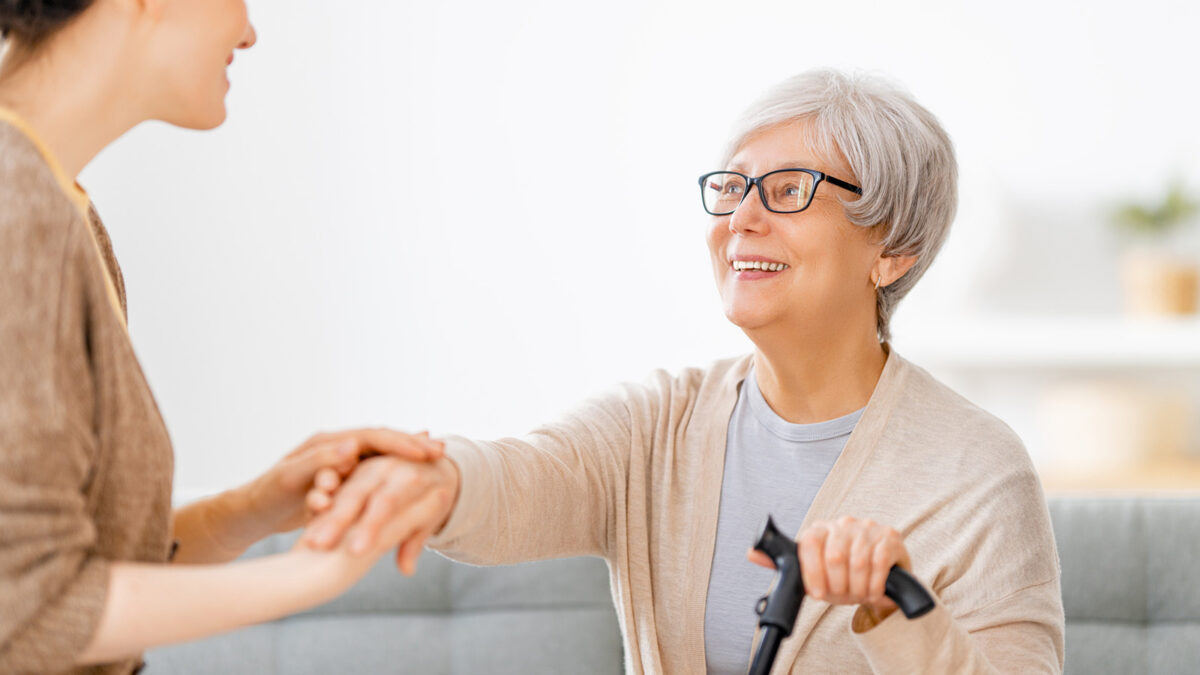Have you or a loved one ever experienced lightheadedness, dizziness or a spinning sensation? A feeling that you’re about to fall or actually falling? Staggering when you begin to walk, blurred vision, confusion, anxiety or panic? Ever feel like you’re moving when you’re actually standing still? Any or all of these can be signs of a balance disorder.
According to the National Institute on Aging, balance issues do tend to increase with age, but there are several causes and ways to cope with unwanted symptoms.
Common Causes of Balance Problems
- Medications. Sedatives, antidepressants, antihistamines, and blood pressure medications have all been associated with balance issues. Drowsiness from medications can slow your reaction time and make it more likely that you will lose your balance.
- Inner ear issues. Your inner ear helps control your balance. A common inner ear condition that affects balance is benign paroxysmal positional vertigo, which happens when calcium crystals form and move elsewhere in the inner ear.
- Alcoholic drinks. Alcohol in the blood can also affect how the inner ear works, causing dizziness and balance problems.
- Migraine-associated vertigo impacts balance areas of the brain, causing motion sickness and instability.
- Foot issues. Bunions, corns, hammertoes and any kind of foot pain can lead to unsteadiness and increase the risk of falling.
- Low blood pressure. Low blood pressure depletes the brain oxygen, causing dizziness, lightheadedness, impaired spatial awareness and even fainting when you stand up too quickly.
- Eye conditions. If your sight or focus declines, it’s easier to become unsteady on your feet. Yearly visits to the ophthalmologist can help prevent and treat conditions that can impact your depth perception and ability to see.
- Other medical conditions. Conditions such as diabetes, heart disease, stroke, multiple sclerosis, Parkinson’s disease, thyroid issues or nerve or blood vessel disorders can cause loss of balance.
6 Ways to Cope With Balance Issues
- See your doctor. If you or a loved one are experiencing balance problems, don’t ignore it, thinking that it is just a part of getting older. Make an appointment with your doctor. Your physician may adjust or change your medications; recommend you change your diet, eat less salt, or avoid alcohol; or refer you to a specialist who can treat your specific condition.
In cases where your balance issues can’t be fully solved through medical intervention, you can change your behavior and your environment to lower your risk of falls.
- Practice safe habits. Never walk in the dark, wear nonskid, rubber-soled low-heeled shoes, and avoid walking in socks or slippers with smooth soles. Know where your pet is at all times so you don’t trip over him or her. You may also want to consider using a cane or walker for extra stability.
- Make your home safer. About 35% of people over age 65 fall in their own homes at least once a year. Here are some steps you can take to make your home safer.
Living area: Add handrails to both sides of staircases. Ensure there is good lighting in stairways or hallways with light switches on both ends, or better yet, consider motion-activated lights that automatically turn on when you walk by. Keep floors free of books, papers, clothes and shoes. Remove throw rugs, and put no-slip strips on hard-surface floors.
Bedroom: Put night lights close to your bed, along with a flash light and a charged cell phone or landline.
Kitchen: Prepare foods while sitting down, place utensils and pans you use most often within easy reach and clean up spills right away.
Bathroom: install grab bars on the inside and outside of tubs and showers and near toilets. Install a nightlight. Put nonskid mats on all areas that might get wet.
- Put help within reach. Get a smart home device that can quickly connect you to family or emergency response teams, wear a push-button pendant that can alert 911, or carry a charged cell phone with you throughout your home.
- Join a support group. Being around other people who are also experiencing this disruptive condition can be very helpful. You’ll receive emotional support from people who know what you’re going through and learn from their challenges.
- Take a fitness class. Tai Chi, gentle yoga and classes specifically focusing on balance can all help improve your stability.
It’s important not to just consider poor balance as a normal part of aging, but to start with a doctor visit to get to the heart of the issue. Managing your balance issues can enhance your relationships and improve your quality of life .
Ingleside’s Life Plan Communities in the Washington metropolitan area are committed to engaged living, giving residents access to a complete continuum of care as their needs change over time. Contact us to find out more and schedule a visit today.

